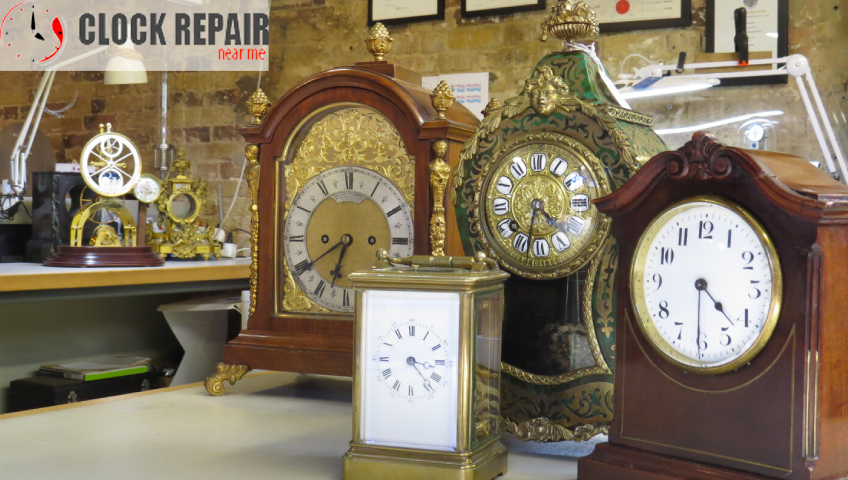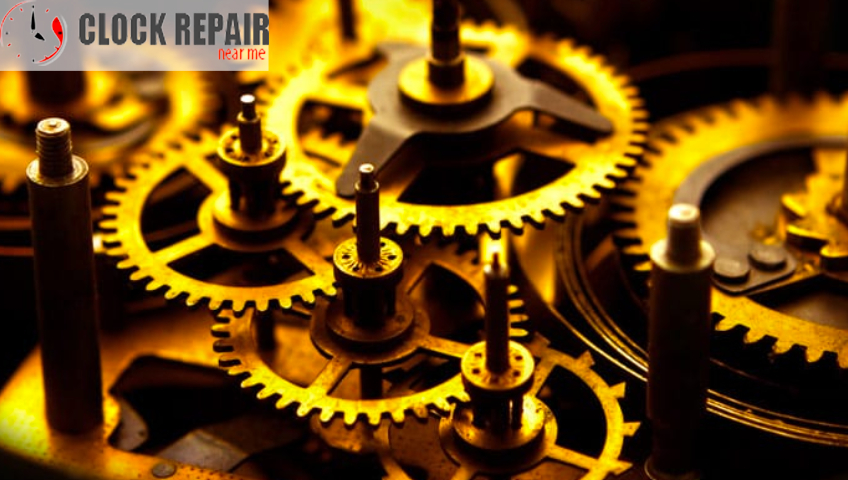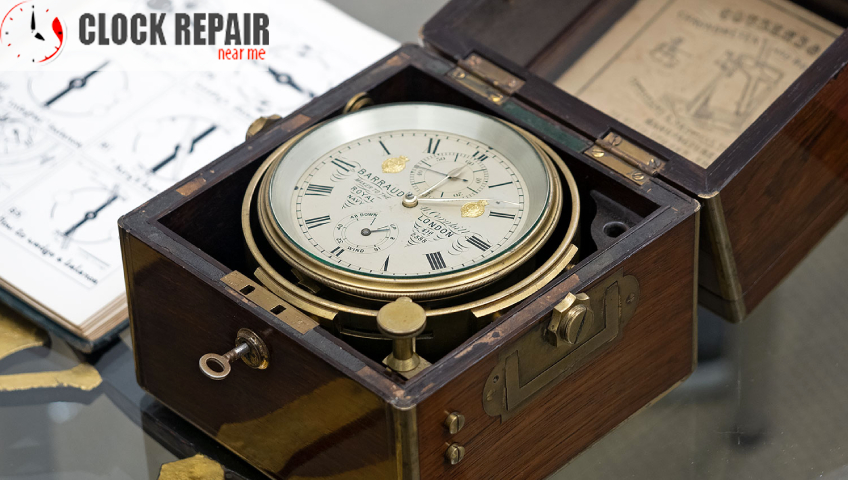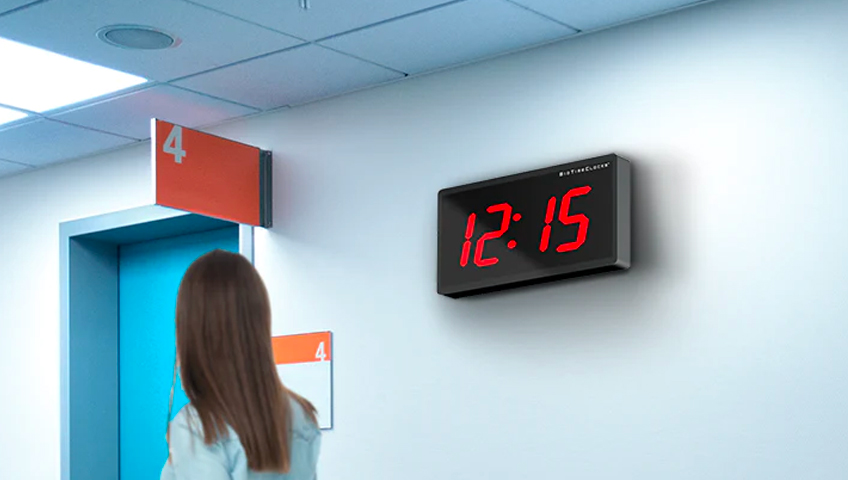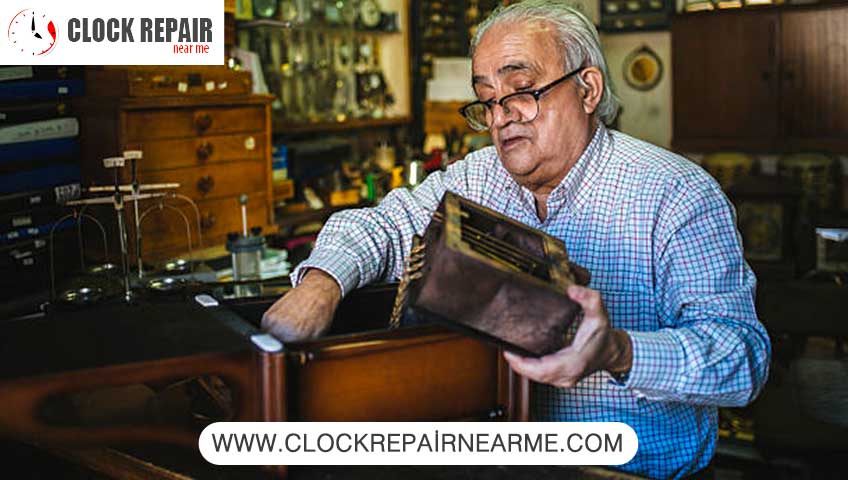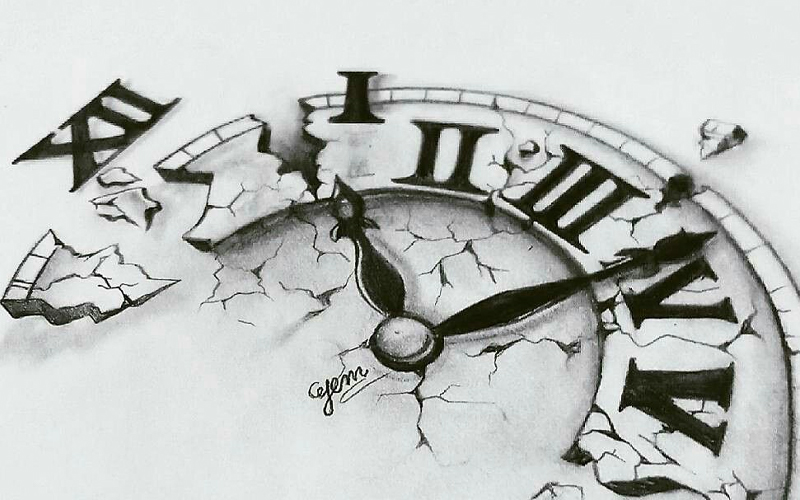Clocks have been an essential part of our lives for centuries. What is clock repairer called? They are not only used to keep track of time, but they also add a touch of elegance and sophistication to our homes and offices. However, just like any other mechanical device, clocks can malfunction or stop working altogether. This is where the services of a clock repairer come in handy. A clock repairer is a skilled professional who specializes in repairing and maintaining clocks. They have a deep understanding of the inner workings of clocks, from pendulums and gears to springs and levers. Clock repairers use their expertise to diagnose and fix various issues that might arise with clocks of all types, including antique, vintage, and modern clocks.
What is clock repairer called? In general, clock repairers are also referred to as horologists. A horologist is a person who studies and repairs timekeeping devices such as clocks and watches. Horology is the art and science of measuring time and is a highly specialized field that requires extensive training and experience. Clock repairers are in high demand because of their unique skill set and knowledge. They play a crucial role in preserving historical pieces and ensuring that modern-day timepieces function correctly. Many clock repairers work independently, while others may be employed by clock manufacturers or antique dealers.
If you have a clock that needs repair, it is essential to find a reputable clock repairer or horologist. You can ask for recommendations from friends and family or search online for reviews and ratings of local clock repair near me. It is also important to inquire about their qualifications and experience in the field before entrusting them with your valuable timepiece. In conclusion, clock repairers, or horologists, are skilled professionals who specialize in repairing and maintaining clocks. Their expertise and knowledge are invaluable in keeping our timepieces functioning correctly. If you have a clock that needs repair, it is best to seek out the services of a reputable clock repairer to ensure that it is restored to its full potential.
The Role of a Timepiece Technician
A timepiece is much more than just an accessory; it is a symbol of style, class, and sophistication. But what happens when your beloved timepiece stops ticking? That’s where a timepiece technician comes in. In this article, we will explore the important role that a timepiece technician plays in keeping your valuable watch running smoothly. A timepiece technician is a skilled professional who specializes in repairing and maintaining watches. They have extensive knowledge of the intricate workings of a watch and are trained to fix any issues that may arise. From simple battery replacements to complex repairs, a timepiece technician has the expertise to keep your watch functioning at its best.
One of the most important roles of a timepiece technician is preventative maintenance. Just like a car or any other mechanical device, a watch requires regular maintenance to keep it performing optimally. A timepiece technician can perform routine services such as cleaning, lubricating, and adjusting the movement. This ensures that your watch is accurate and reliable. In addition to routine maintenance, a timepiece technician can also diagnose and repair any problems that may arise with your timepiece. Whether it’s a broken crystal, a damaged crown, or a malfunctioning movement, a skilled technician can quickly identify the issue and provide an effective solution. They have access to specialized tools and equipment, as well as a vast knowledge of watch brands and models.
Another important role of a timepiece technician is restoration. Antique timepieces are often family heirlooms and hold sentimental value. A timepiece technician can restore these watches to their original condition, preserving their history and ensuring they can be passed down for generations to come. In conclusion, a timepiece technician plays a vital role in keeping our watches ticking. They possess specialized knowledge and skills that allow them to perform maintenance, repairs, and restorations on all types of watches. So the next time your timepiece needs attention, don’t hesitate to seek out the services of a qualified technician.
Understanding the Work of a Watch Repairer
Watches are an essential accessory that can make or break an outfit. A watch that is well-maintained can last for generations, but even the most durable of watches require maintenance and repair from time to time. That’s where a skilled watch repairer comes in. A watch repairer is a highly trained professional who specializes in the repair and maintenance of watches. Their work involves diagnosing problems with watches, disassembling them, replacing any faulty components, and reassembling the watch to ensure it functions correctly.
One of the most critical aspects of a watch repairer’s job is understanding the intricacies of a watch’s inner workings. They must understand how each part works and how they interact with one another. They also need to be familiar with different types of watches, including mechanical, quartz, and automatic watches. To become a watch repairer, one needs to undergo extensive training and certification. They learn about the different parts of watches, how to diagnose problems, and how to use specialized tools to fix them. They also learn about the different brands and models of clocks, which helps them provide more targeted and specialized repair services.
Aside from repairing watches, a watch repairer may also offer cleaning and maintenance services. This includes polishing the watch’s exterior, checking the battery life, adjusting the watch straps, and ensuring the watch is water-resistant. By providing comprehensive services, a watch repairer can help their clients keep their valued timepieces in excellent condition. In conclusion, a watch repairer is a highly skilled and trained professional who plays a vital role in maintaining and repairing watches. They have the knowledge and expertise needed to diagnose and fix problems with watches, ensuring they continue to function correctly for years to come. Whether you have a valuable heirloom watch or a daily-wear timepiece, a watch repairer can help you keep it in top condition and extend its lifespan.
What is a Chronometer Maker?
Have you ever heard of a chronometer maker? It’s a fascinating profession that requires precision, technical expertise, and creativity. In this article, we’ll explore what it means to be a chronometer maker and what makes this craft so unique. Firstly, let’s define what a chronometer is. A chronometer is a timepiece that has been tested and certified to meet specific accuracy standards, usually by an independent organization. These standards ensure that the timekeeping device is precise and reliable, even in harsh conditions such as extreme temperatures, vibrations, or magnetic fields. The role of a chronometer maker is to design, build, and test these timepieces to ensure they meet the strict standards set out by various organizations. This requires a deep understanding of horology (the study of timekeeping devices) and precision engineering.
Chronometer makers often work with high-end watch brands, scientific institutions, and even government agencies that require accurate timekeeping equipment for navigation, research, or military operations. They may also work independently, designing and building their own timepieces. To become a chronometer maker, one must undergo extensive training and apprenticeships under experienced professionals. This includes learning how to design and build the intricate components of a watch, as well as how to test and calibrate its accuracy. In addition to technical skills, a successful chronometer maker must possess a keen eye for detail, patience, and a deep passion for their craft. Each timepiece they create is a unique work of art that combines both form and function.
Exploring the Profession of a Timepiece Restorer
The art of restoring timepieces is a mysterious profession that many are unaware of. It requires a blend of technical skills, historical knowledge, and artistic talent to bring back the life of antique watches, clocks, and other timepieces. In this article, we will delve into the world of timepiece restoration and explore what it takes to become a skilled craftsman in this field. Timepiece restoration involves the repair and refurbishment of timepieces, including antique and vintage pieces. The process involves disassembling the entire watch or clock mechanism, checking each part for damage, replacing worn out or broken parts, cleaning the movement, and reassembling the watch or clock. This meticulous process requires patience, precision, and attention to detail. A timepiece restorer must have a deep understanding of the history of watches and clocks. They must know the different types of movements, mechanisms, and designs that were used over the years, in order to properly restore them. Additionally, they must be familiar with the different materials that were used in the construction of these timepieces, such as metals, glass, wood, and more.
To become a timepiece restorer, one must undergo formal training or an apprenticeship with an experienced master watchmaker or clockmaker. This training often takes years to complete and involves learning about the intricacies of watch and clock mechanisms, as well as the tools and techniques needed to repair them. In addition to technical skills, a timepiece restorer must also possess artistic talent. They must be able to visualize how a timepiece looked originally and recreate it with precision and attention to detail. This requires a keen eye for aesthetics and an appreciation for historical design. In conclusion, the profession of timepiece restoration is an intricate and fascinating field that requires a unique combination of technical skills, historical knowledge, and artistic talent. It is a profession that demands patience, precision, and a deep appreciation for the art of horology. For those interested in pursuing a career in timepiece restoration, there are many apprenticeships and formal training programs available that can provide the necessary skills and knowledge to become a skilled craftsman in this field.
The Job of a Clock Service Technician
Clocks have been a vital part of human civilization for centuries. From the ancient sundials to modern-day digital clocks, they have served us well in keeping track of time. However, like any other mechanical device, clocks can malfunction and require repairs. This is where clock service technicians come in. A clock service technician is a professional who specializes in maintaining, repairing, and restoring clocks of all kinds. They are experts in their field and possess a wealth of knowledge about the intricate workings of various clocks, from simple wall clocks to complex grandfather clock repairs. One of the most critical aspects of a clock service technician’s job is accurately diagnosing and fixing issues with clocks. It requires extensive knowledge of clock mechanisms and the ability to identify problems even before the customer reports them. They must be skilled in the use of specialized tools and equipment, including timing machines, oilers, and cleaning solutions.
In addition to repair work, clock service technicians are also responsible for routine maintenance tasks such as cleaning, oiling, and adjusting the mechanisms of clocks. This ensures that the clocks continue to function correctly and maintain accurate timekeeping. Clock service technicians work in a variety of settings, including clock repair shops, antique stores, and museums. They may also make house calls to repair or service clocks on-site. Their job requires excellent communication skills as they need to explain technical concepts and procedures to customers clearly. To become a clock service technician, one must undergo specialized training and acquire certification. The training involves learning about the various types of clocks, their mechanisms, and how to diagnose and repair issues. A good clock service technician should also stay up-to-date with new technologies and advancements in the field.

